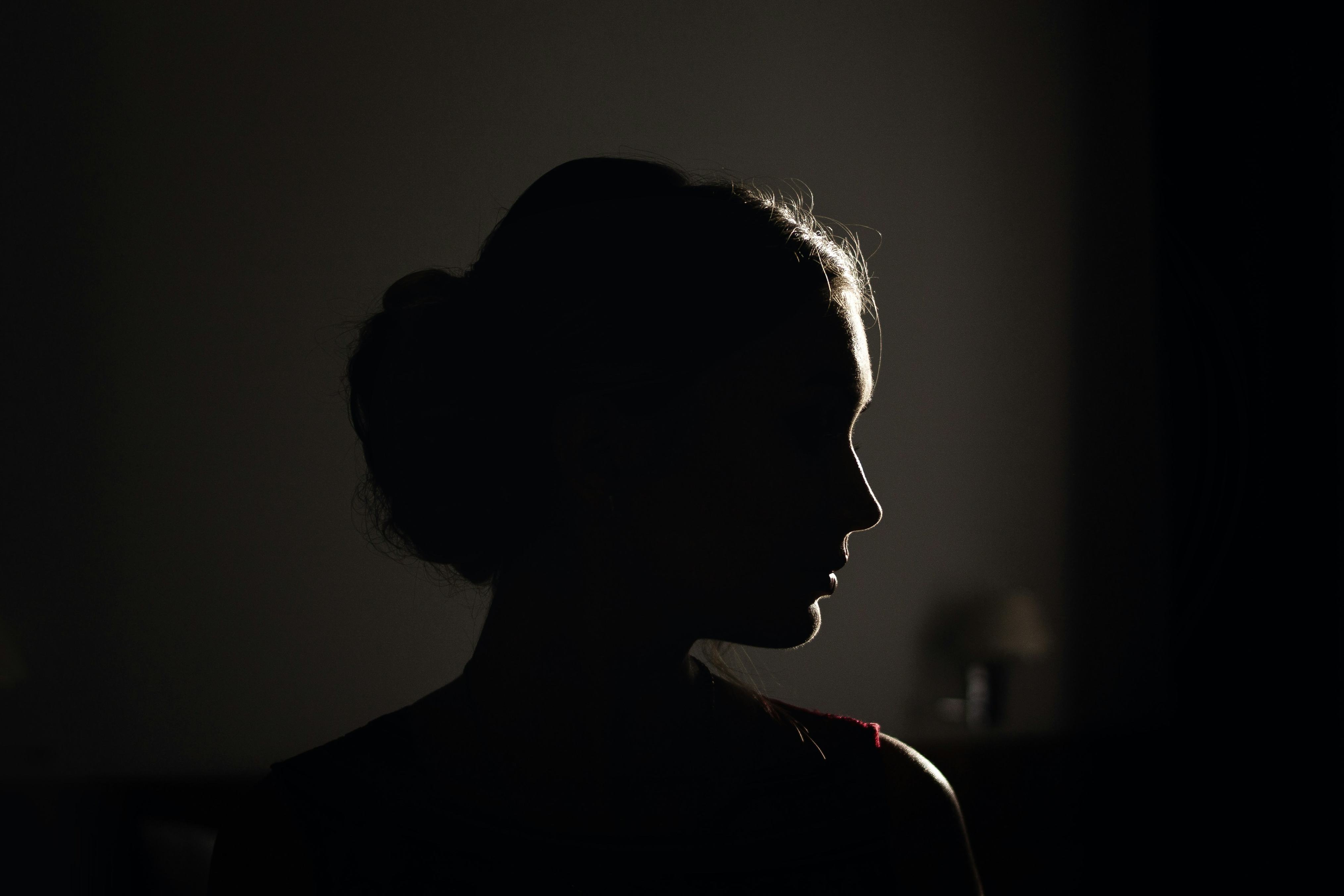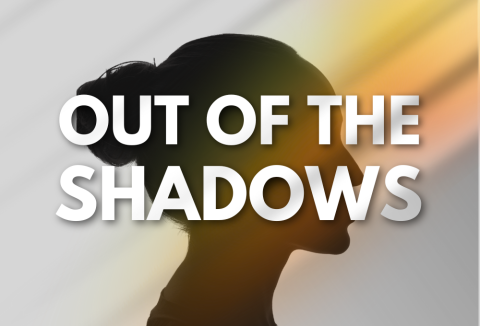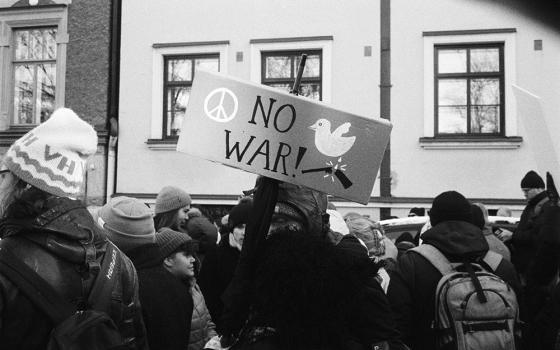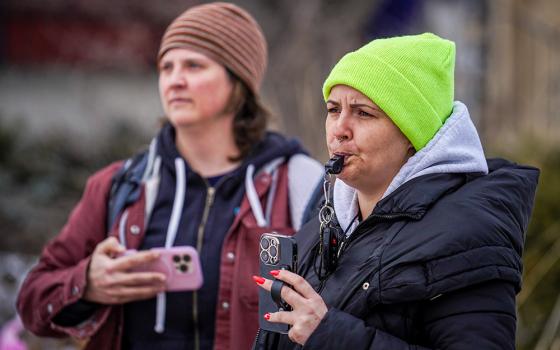
(Unsplash/Andrey Zvyagintsev)
Editor's note: This story is part of Out of the Shadows: Confronting Violence Against Women, a series by Global Sisters Report and Global Sisters Report en español, focusing on how Catholic sisters respond to or are affected by this global phenomenon.

(GSR logo/Olivia Bardo)
"The owner of the house came out to speak to them and said, "No, my brothers, please! Do not misbehave. You see this man is now under my roof, don't do such a thing. I have a daughter who is still a virgin and he also has his concubine. I will give them to you, you can rape them and treat them as you like, but don't do such an ugly thing with that man." The others would not listen to him. So, the Levite took his concubine and led her out. They raped her and abused her all night until dawn; at dawn they let her go" (Judges 19:23-25/Latin American Bible).
This text highlights the voices of men — the Levite, the servant, the old man — while the women remain silent, unnamed and discarded. They are only referred to as the concubine of Bethlehem of Judah or "the old man's daughter," who took the risk of offering hospitality to a stranger.
It is a heartbreaking account of brutal violence against women, exposing their vulnerability in a patriarchal system. The old man, clinging to his role of masculine protector, chooses to safeguard the stranger by offering his own daughter and concubine to be sexually assaulted: "You can rape them and treat them as you like, but do not do such a vile thing to this man."
"We are still missing something essential if we cannot name and confront the systemic nature of abuse within our Catholic Church": Sr. Yolanda Olivera
Women are left helpless, exposed to abandonment, and discarded in an abusive patriarchal system. Their lives are in the hands of a group of men who sexually abuse them and abandon them like disposable objects. Has the suffering of the victims ceased to move us? Is this why we still engage in cover-ups, normalizing and minimizing abuse, protecting abusers, and placing the burden of shame and confusion on the survivors. We are still missing something essential if we cannot name and confront the systemic nature of abuse within our Catholic Church.
Power imbalances and discriminatory structures create fertile ground for abuse. Victims of abuse — spiritual, sexual, power or conscience — continue to be revictimized. Legalistic and stereotypical attitudes force them into silence, while they wait—still—for women and men who will dare to believe them, welcome their pain, and create safe, trustworthy spaces. The Catholic Church, as the late Pope Francis said, is called to be a "mother with an open heart" and a "field hospital." But that mission must begin with listening.
This is not theoretical for me. In April 2019, I arrived in Boa Vista, Roraima, Brazil, where my congregation — the Franciscan Missionaries of the Mother of the Divine Shepherd — opened a shelter to accompany migrants. Starting in June of that year, I spent five years working with an NGO that serves vulnerable migrant families and the LGBTQIA+ community. The wounds I witnessed changed me deeply.
Later, I was invited to join the Care and Protection team of the Diocese of Roraima, where I led training sessions on abuse prevention, healthy relationships, civil and canon law, and procedures for receiving reports of sexual abuse, abuse of power, and abuse of conscience committed by clergy, religious and laypeople.
Listening to survivors face-to-face convinced me of the need for serious training. In 2022, I earned a diploma in the Care and Protection of Children, Adolescents, and Vulnerable People, offered by CLAR in Bogotá. In 2024, I was invited by CLAR to become a tutor and teacher in that same program. That year, I also served at the Mother Concepción Dolcet Community Center in Argentina — run by my congregation — accompanying families affected by domestic violence.
I now live in Villa Rica, Oxapampa, Peru, where I accompany people who have experienced various forms of violence, both in person and online. I also lead workshops on prevention and building healthy bonds. This issue of violence has taken deep root in me. That's why I continue to pursue formation — so I can offer a compassionate, human and hospitable response. I also serve on the national Care and Protection team of the Conference of Religious of Peru.
Advertisement
That's why I say this with conviction: Listening is an art. It is a disposition of the heart. It is not easy. The pain of victims often throws us into unfamiliar and precarious places — where we face our own vulnerability and the fragile structures the church currently has to accompany and repair those who have been wounded.
To listen is to offer refuge. It is liberating. It demands risk. It transforms us and guides us toward renewal. It refines our choices. And it is in this process that the God of Life walks with us — strengthening our fight against a patriarchal system that demands our silence, compliance, and the fulfillment of roles — determined by them — in the private sphere.
As women, our mission is not to judge or mediate — it is to be fully ourselves, in all our diversity. It is to welcome others, to kneel beside human suffering, and to bear witness to the cries of the victims. It is to build humanizing ecosystems, spaces where resurrection and new wine are poured out, where encounters are sacred, and life is tended, repaired and healed. This is how kairos — God's opportune moment — happens.
We are called to see life through the eyes of survivors. For that reason, it is urgent to build networks in which they can feel truly welcomed, heard, and accompanied.
Finally, let us ask the Divine Ruah to help us transform death-dealing relationships into spaces of life. May we become a church that courageously commits to naming and confronting abuse in all its forms. Survivors are crying out for protection and reparation, equity and truth, life above all. Are we ready and willing to respond? What still needs to change in our church and communities to truly accompany and offer reparation to those who have been wounded?







